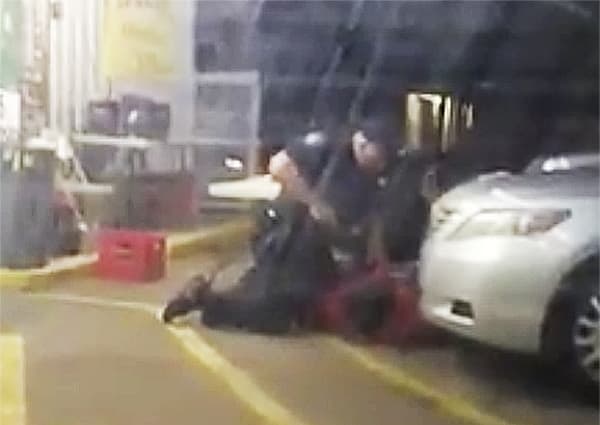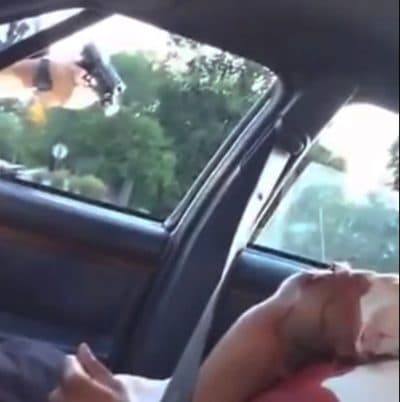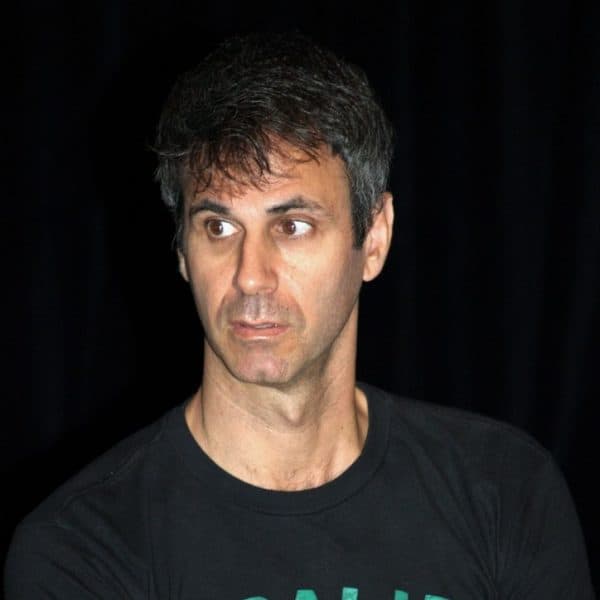Advertisement
Should I Watch The Videos Of Officer-Involved Shootings Online?

Editor's Note: This is a special, off-cycle edition of Heavy Meddle. When this letter came in on Friday, we decided it couldn't wait. Take care of yourselves.
...
Dear Steve,
I cannot stop thinking about the violence that has shaken our country these past few days. Alton Sterling’s senseless killing in Baton Rouge, Philandro Castile’s shooting in front of his girlfriend just outside of Minneapolis, and now the killing of five police officers at a Black Lives Matter rally in Dallas. I think about these deaths, and I obsessively consume op-ed articles on them, but I cannot bring myself to watch the video footage of the shootings. Should I, though?
I call myself an activist. I am a white woman and 100 percent believe that Black Lives Matter. So, why am I afraid to watch the videos?
I want to protest, I want to march, but I don’t know if I want to watch the videos.
My friends are watching them and sharing them on social media, and I think that’s important. Part of me wants to put myself through the viewing because bearing witness to these deaths is vital, and maybe it will spur me to share the videos or talk with members of my community — and even older family members who are ignorant or confused about the movement — about police violence. But then I tell myself that it won’t make a difference if I watch the last few seconds of these black men’s lives… or will it?
I guess I am hoping to make sense of this. So many writers and activists are trying, but everything I’m reading online is about despair that nothing has changed, and that we are even becoming desensitized to the death of black lives.
I want to protest, I want to march, but I don’t know if I want to watch the videos.
Sincerely,
Looking For Guidance

...
Dear LFG,
I’m sure there’s an argument to be made that viewing the deaths of these young men will make bring home the reality of police brutality in your mind and heart. Or allow you to bear witness. But I’m not the guy to make that argument.
I don’t believe that watching acts of violence — whether real or imagined — is morally instructive. I don’t believe that viewing such images makes most people brave or noble or more apt to seek justice. I think it stirs them up in ways that are primal, deeply confusing, and rarely constructive. As a rule, it makes people frightened, then angry.
I happen to believe that gluing ourselves to those screens isn’t, for the most part, making us more informed. It’s making us more inflamed.
I can still remember visiting with friends in the days and weeks after the terrorist attacks of September, 2001. Everyone was so agitated. One guy — a new father whose politics I knew to be humane and even pacifistic -- joked about dropping bombs on Saddam Hussein. I didn’t get it. It was as if the entire population was slightly drunk on wrathful indignation, as if all sense of moral doubt and nuance had been bled out of us.
I should mention that I didn’t have a TV back then, and that my internet connection was broken that particular week, and so I saw no video from those attacks. It wasn’t until a week later, when I went to a bar, that I realized how much my friends (and your friends) had been in the thrall of those violent images. They had become a kind of national tapeloop of trauma.
And I happen to believe that the obsessive focus on those videos contributed to our catastrophic response to those attacks. Those images encouraged us — both consciously and unconsciously — to flatten out our world into heroes and villains. And this view (the view of a child, frankly) led to our leaders making a lot of ill-considered and destructive decisions. Which we, as citizens of a democracy, either supported, or failed to oppose vigorously enough.
Advertisement
To be clear: I am not speaking here about the experiences of anyone who was a direct survivor of those attacks. Nor the friends and family of those poor souls. I am talking now about the rest of us, whose interest in the matter — no matter what we tell ourselves — was essentially vicarious. Our bodies and our fates weren’t injured by those attacks. Our fears and anxieties were roused.

To address the tragedies upon us: One can imagine that the shooters who murdered those five police officers in Dallas shared your anguish at the militarization of our police, and the savagery that certain officers aim, disproportionately, at people of color, as well those marginalized by poverty, mental illness, or addiction.
I would further hazard a guess that the man or men who murdered those police officers in Dallas had spent some time viewing videos, and reading accounts, of police officers killing unarmed men of color. They might have seen some of the viral videos that you mention.
This is all conjecture, but please consider this question: Do you believe that viewing these videos might have contributed, in some small way, to their murderous actions? That viewing images of police officers shooting citizens of color over and over again might cause them to begin to see all police officers as evil, or capable of such atrocities? That it might have contributed to a mindset in which murderous aggression becomes justified as a form of protest?
If the answer to this question is yes, or even maybe, you might want to reflect on the moral side effects of those viral videos.
To put it plainly: People in this country shouldn’t need to see footage of law enforcement officers murdering unarmed African-American men to recognize police brutality — and our prison industrial complex — as a national crisis. In the same way we shouldn’t need to see footage of a deranged shooter mowing down school kids with a semi-automatic weapon to recognize that we have a gun problem in this country.
no video clip will grant our citizens the moral imagination necessary to stanch the violent thoughts and acts that plague our historical moment.
Morality is an act of imagination, after all, not something that should be prodded awake by a bloody clip viewed on Facebook. Here’s how I put it in a piece I wrote about the 10th anniversary of 9/11:
Say you took the long view of September 11, 2001, the view from the heavens, the view of a compassionate celestial being. From up there, you’d see that approximately 150,000 earthlings died that day. Most of these deaths were caused by malnutrition and age-related illnesses, roughly 1,500 were murders, hundreds more were due to civil wars. Also, 2,977 Americans were killed in terrorist attacks on New York City and Washington. A lot of human beings died, that’s my point. They all left behind mourners.
Imagine the mother who watched her child die of hunger. Here’s this tiny person, a daughter. She has a name, a face. She doesn’t explode or fall from a skyscraper. She simply stops breathing. No cameras record her final moment, the lamentation of that mother. These images are not replayed on the television over and over and over. What would be the point of that?
I’m sorry to go on about this, LFG. But it’s something I’ve thought about a great deal. I realize that Americans are in a state of anguish at the images on their screens. But I happen to believe that gluing ourselves to those screens isn’t, for the most part, making us more informed. It’s making us more inflamed.
Is it true that too many cops act out with violence, and target people of color? Yes. Should activists like you be fighting for reform of our law enforcement and criminal justice systems? Hell yes.
But a parallel truth is that most police officers are hard-working public servants, who seek to protect the public (that’s us) as best they can. No quest for justice can proceed from bigotry. And no video clip will grant our citizens the moral imagination necessary to stanch the violent thoughts and acts that plague our historical moment.
Steve
♥
Author's note: I’m not sure how much that response will help Looking for Guidance. But it’s what I have to say on the matter. What do you have to say? Let us know in the comments section below. And feel free to send a letter to Heavy Meddle, too. You can use this form, or send your questions via email. I may not have a helpful response, but the act of writing the letter itself might provide some clarity. — S.A.
♥
Heavy Meddle with Steve Almond is Cognoscenti's advice column. Read more here.
